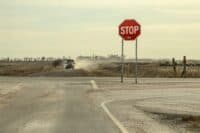Some bright person came up with the term "decoupling". It is meant to say that trouble in the US economy will not spread to the hot economies is Asia. Perhaps it gives them some false comfort to believe that they are safe. But, the illusion is beginning to fail.
The head of HSBC (HBC) is Asia told the Times a full-scale recession in the United States would have a knock-on effect on Asia, regardless of arguments that the region had “decoupled” from America. Although the statement comes a bit late in the game, it is, nonetheless, accurate.
Any observer can simply look to the stock markets in China. The Hang Seng fell over 5% overnight on news of a growing financial crisis in the US. It now trades at just over 21,000 down from a 52-week high of 31,958. A 34% correct seems like a lot. If the Dow has done that, it would be trading at 9,000. Things have been even worse over at the Shanghai Composite which has a 52-week high of 6,124 and now trades at 3,820.
The reality of the situation is that Asia, especially China, could go into a much deeper recession than the US. The fifth-grader version of the reason is that China relies much more on its growth from exports to the US than the US relies on China. The big Asian economy cannot keep up a 10% GDP growth if its exports drop to 5%. Recent numbers put the year-over-year export improvement at between 6% and 7%, which is not as fast as the figure was moving up last year.
The US and Asia may be "decoupled" in that the Far East has the worse end of the deal.
Douglas A. McIntyre
Thank you for reading! Have some feedback for us?
Contact the 24/7 Wall St. editorial team.


